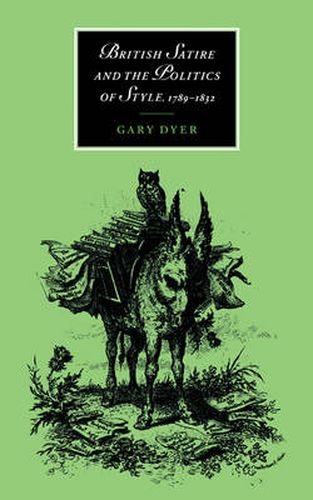Readings Newsletter
Become a Readings Member to make your shopping experience even easier.
Sign in or sign up for free!
You’re not far away from qualifying for FREE standard shipping within Australia
You’ve qualified for FREE standard shipping within Australia
The cart is loading…






This book surveys and interprets the hundreds of satirical poems and prose narratives published in Britain during the Romantic period. Although satire was a major genre with a wide readership, such works have been largely neglected by literary scholars, satisfied that satire disappeared in the late eighteenth century. Paying as much attention to now-forgotten figures like John Wolcot (‘Peter Pindar’) and Jane Taylor as to Byron, Gary Dyer argues that contemporary political and social conflicts gave new meanings to conventions of satire inherited from classical Rome and eighteenth-century England. Situating these satires in their cultural and material context sheds light on issues such as the tactics satirists used to deflect prosecution for sedition, and the ramification for women writers of satire’s ‘masculine’ connotations. The book includes a bibliography of more than 700 volumes containing satirical verses.
$9.00 standard shipping within Australia
FREE standard shipping within Australia for orders over $100.00
Express & International shipping calculated at checkout
This book surveys and interprets the hundreds of satirical poems and prose narratives published in Britain during the Romantic period. Although satire was a major genre with a wide readership, such works have been largely neglected by literary scholars, satisfied that satire disappeared in the late eighteenth century. Paying as much attention to now-forgotten figures like John Wolcot (‘Peter Pindar’) and Jane Taylor as to Byron, Gary Dyer argues that contemporary political and social conflicts gave new meanings to conventions of satire inherited from classical Rome and eighteenth-century England. Situating these satires in their cultural and material context sheds light on issues such as the tactics satirists used to deflect prosecution for sedition, and the ramification for women writers of satire’s ‘masculine’ connotations. The book includes a bibliography of more than 700 volumes containing satirical verses.